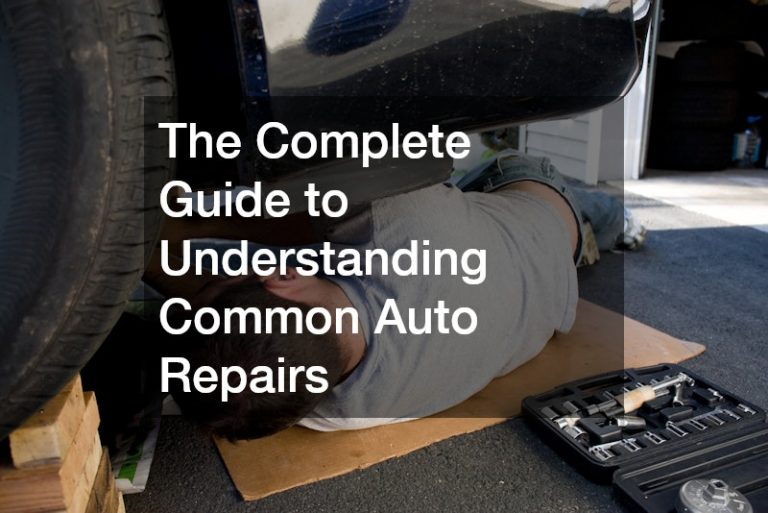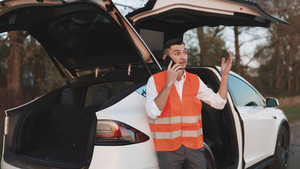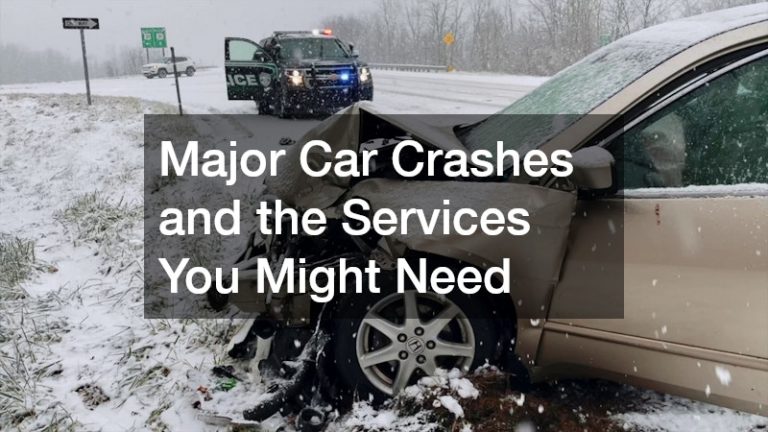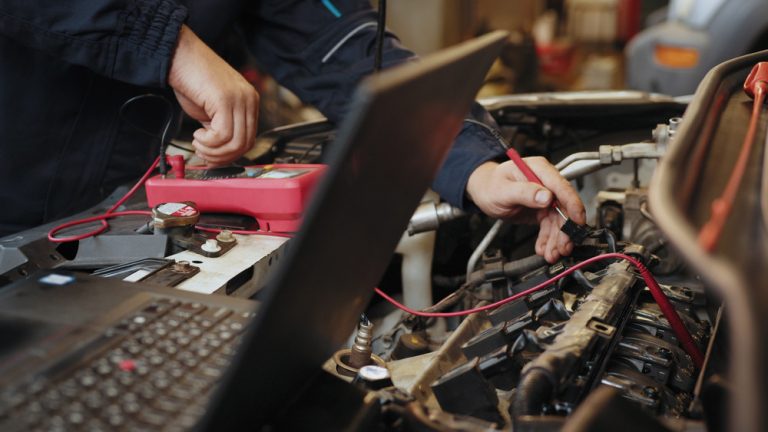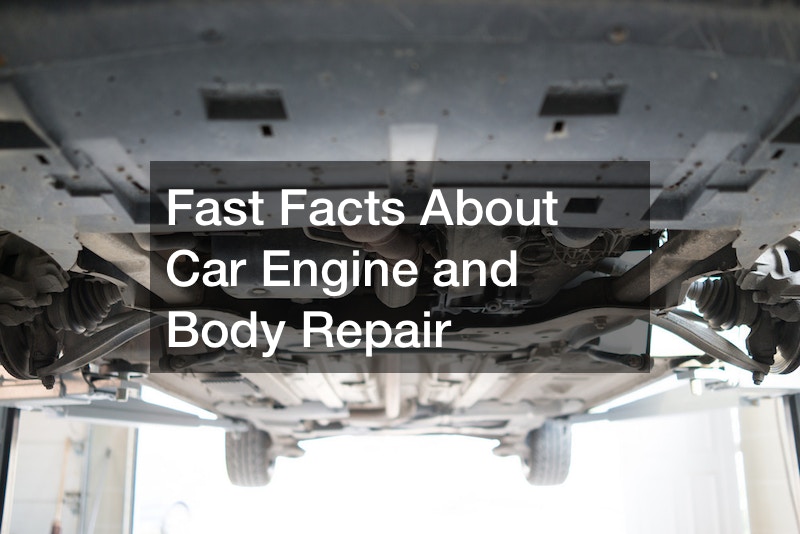

Owning a car comes with some responsibility for caring for it to ensure optimal performance. This could mean that, at some point, your vehicle will require engine or body repair work. Here are some facts you should know about those types of repairs.
Top Signs Your Car Needs Repairs
There are some signs that you may need car engine and body repair. First, if you notice any strange noises, it may be time to visit the auto shop. The noises may be grinding, clicking, or knocking. These are often signs of mechanical problems.
If you see any of your dashboard warning lights come on, there is a good chance it’s alerting you to a problem. For example, you may see the oil pressure light or check engine light come on to indicate you may need service.
When you notice your car isn’t accelerating the way it typically does or sounds rough while idling, these are signs that there could be a problem with the engine or its components. Another sign of this is your car is using more fuel than typical.
Feeling an unusual vibration while driving, especially at high speeds, may indicate there is a problem with your suspension, tires, or steering components. Likewise, if you notice a smell like burning rubber, oil, or any other unusual odors, it could also be a sign that you need to have your engine looked at by a technician.
If you begin to see leaks under your car, it could indicate you have a leak somewhere in the transmission or engine. It is often a sign of a larger problem.
The Most Common Car Part Failures
If you know anything about car engine and body repair, you know there are some parts that commonly fail. It doesn’t matter how well they are made; they will fail after wear and tear or age. So when you are trying to plan ahead and budget for any car repair bills you might face, consider these parts that are most likely going to fail.
The battery is only going to last for a certain period of time, just like all batteries. However, they do have a shelf life. If they aren’t used for extended periods of time or are exposed to extreme temperatures, they may fail faster.
Your alternator is what charges your battery and gives the electrical components of your car the power they need to run. After a set amount of time and as the alternator ages, it will fail. Spark plugs ignite the fuel in the engine. They commonly fail over time, especially if there is poor wiring or your air filter is dirty.
Brakes and brake discs wear out over time. You will need to replace them. You can extend their life by performing regular maintenance, like changing the brake fluid.

Repairs Covered by Car Insurance Providers
When you need car engine and body repair, you may wonder which of those repairs are covered by your auto insurance. The quick answer is it depends on your car insurance coverage. However, there are some common repairs that you can expect might be covered. If you have liability insurance, it typically only covers damages or injuries you cause to others during an accident. This type of insurance will not cover repairs to your own vehicle.
When you have collision insurance, it can help pay for repairs or replacement of your car when it’s damaged in an accident, regardless of who is at fault for the accident. Comprehensive insurance, on the other hand, will cover repairs to your car if it’s damaged by something other than an accident. These could be events, including theft, vandalism, or weather.
You may want to consider having uninsured/underinsured motorist coverage. This coverage will help pay for repairs to your car if you’re in an accident with someone that doesn’t have insurance. Or they may have insurance, but it’s not enough insurance to cover the damages.
What to Look for in Auto Insurance
When you are purchasing an automobile insurance plan, you may want to think ahead and include coverage for car engine and body repair. One of the first things you will learn about auto insurance is that there are many different types.
You can purchase general auto insurance as well as mechanical breakdown insurance. They offer different types of coverage. General auto insurance protects you if your car is damaged in an accident; however, it won’t cover a mechanical breakdown that wasn’t a result of an accident.
If you are interested in insurance that covers mechanical breakdowns, you should look into mechanical breakdown insurance. When you purchase a car, it typically comes with a warranty that eventually expires. So when your car needs repair, and your warranty is over, you will have to pay for the full amount of the repair out of pocket.
Mechanical breakdown insurance can often provide the same type of coverage that a warranty would provide. However, you should be aware that it will not cover normal wear and tear items like tires or oil changes. On the other hand, it will help if you have to replace your transmission.

What to Do After a Car Accident
Auto accidents can be traumatic events. You can be hurt, and your car could be significantly damaged. Most likely, when you have been in an auto accident, you will need car engine and body repairs. Therefore, when you are in a car accident, it is critical that you take some key steps to protect yourself and ensure your safety.
You should contact emergency services or 911 right away if there are injuries. If there are no injuries, you should report the accident to the police. If there are other people involved in the accident, you should get their contact information. This includes names, phone numbers, addresses, and insurance information. Don’t forget about any witnesses. You want their information, too.
You should obtain as much documentation as possible. You want to take pictures of the scene, including damage to the vehicles and the surrounding area. You want to get pictures of the cars in their positions when the impact happened. If there are tire marks on the road, you want those pictures, also.
You want to provide police officers with accurate and truthful information about the accident. You should be sure to get a copy of the police report. You want to contact your insurance provider as soon as you can. It is essential to report the accident to your insurance provider. You should provide them with as much information about the accident as possible. They will want a copy of the police report.
The Most Common Types of Auto Body Damage
When looking at the possibility of car engine and body repair, you may want to understand the most common types of auto body damage. When it comes to collision repair, dents are one of the most common auto body damage types. They can be caused by just about anything from hail to parking lot accidents. In addition, dents can vary in size and severity, from the smallest dings to large, deep dents.
Scratches are another common type of damage. They are also created by items like road debris, vandalism, or even from car washes. You may also find that you have damage to your bumper. This tends to be common in cities. It’s caused by backing into items, hitting curbs, or fender benders.
Windshields are often broken or cracked as a result of hail, flying debris, or temperature changes. While this may not look nice, it can also pose a safety hazard and should be repaired or replaced promptly. Another common type of damage is to the frame, which can be more expensive and require specialized expertise.

Why Choosing an OEM-Certified Shop Is Important
When you have car engine and body repair, you may need to make a decision about using original equipment manufacturer (OEM) parts. There is a general thought that OEM parts have a higher quality. This is because the same manufacturer makes the parts that were originally on your car. They are intended to be specifically for the make and model of your car. These parts are thought to provide the most optimal performance for your vehicle.
If you are interested in OEM certified collision repair, you must have an OEM-certified and skilled technician work on your car. These technicians are trained and certified by the manufacturer to repair and maintain their specific make and model of vehicles. They have the expertise to make a proper diagnosis and repairs. The repairs by an OEM-certified service center are typically covered by a manufacturer warranty.
Another consideration is that when you use OEM-certified parts, it can help your vehicle retain its resale value. In addition, you can feel secure that the repairs to your car will keep it in its best condition.
Why Body Panels Warp During an Accident
When there is a collision, you may find that you need car engine and body repair. What many might not know is that the impact during a collision may cause the body panels of a car to bend or warp. The force of an impact may be so great that the metal body panels of a car can bend or warp. This may happen more often when the accident is at a high rate of speed or involves large vehicles.
The material used in a car’s body panels is metal but with some amount of elasticity. This elasticity allows the panel to bend and deform without breaking. But, when the force of the impact is too great, the metal can deform permanently, which causes it to warp.
During an accident, there is friction and other factors which causes the temperature of the metal body panels to increase rapidly.
This sudden increase in temperature causes the metal to expand and warp. In addition, the direction of the impact affects which body panels are more likely to warp. For example, a rear-end collision may cause the rear bumper or trunk to warp, whereas a side-impact collision may cause the door or side panel to warp.

Why Some Dent Repair Services Damage the Paint
When you have dent repair service as a part of a car engine and body repair, it may be surprising to know that some of these services can damage the paint. Some dent repair service technicians don’t have the necessary experience or skill to perform the repair properly. When this happens, they can cause damage to the surrounding paint. Some improper techniques that may be used include excessive force or incorrect tools. These tools can cause scratches or chips to the paint.
When considering car painting, you may need to take a look at the surrounding area to the dent. If the area around the dent already has some paint damage, like scratches or chips, it may be more challenging to repair without causing additional damage. In addition, the paint condition impacts the repair process. For example, faded or weathered paint can be more prone to damage during the repair process.
How Auto Detailers Get Your Car Looking Like New
When you need car engine and body repair, you may want to clean up your car afterward. You could consider local auto detailing. This type of care includes detailing, paint touch-ups, and buffing. An auto detailer provides cosmetic care for your vehicle and may improve the way it looks.
An auto body shop details the car by cleaning the exterior and interior of the car. They pay special attention to the wheels, tires, and engine bay. Then, a body shop buffs your car with a rotary buffer and special polishes to remove any imperfections from the paint and restore the shine.
There are various types of car engine and body repairs. You may not realize all of the items that fall into this category which makes this article a great place to start when thinking about that type of repair.
